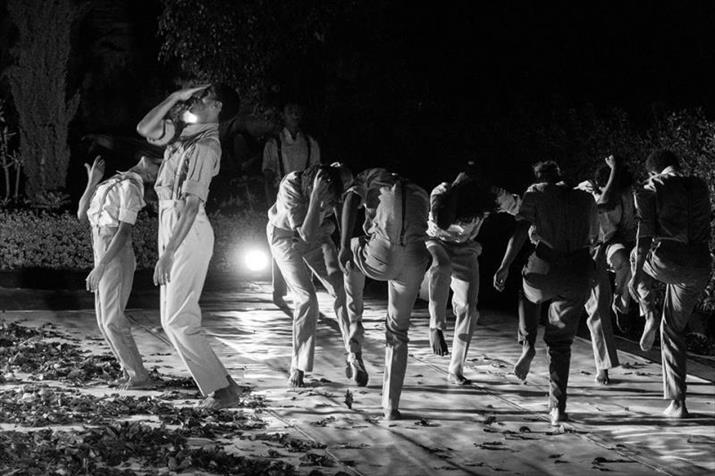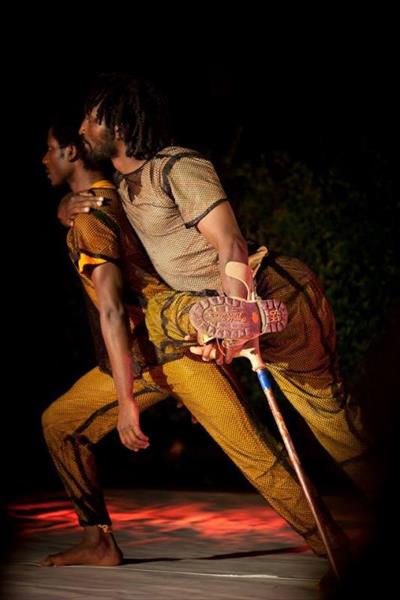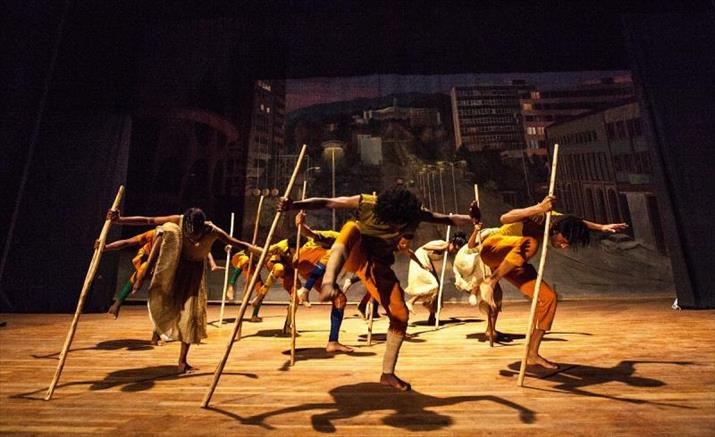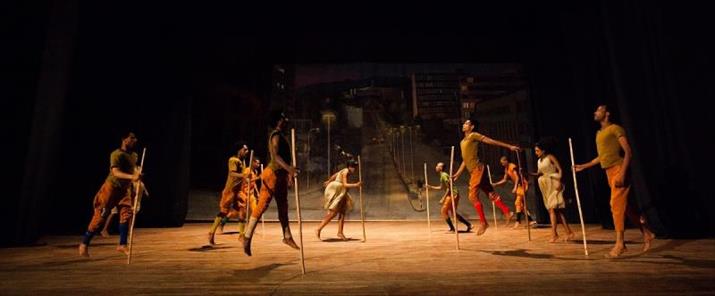|
||||||||||
| Home Nation World Business Opinion Lifestyle ChinAfrica Multimedia Columnists Documents Special Reports |
|
||||||||||
| Home Nation World Business Opinion Lifestyle ChinAfrica Multimedia Columnists Documents Special Reports |
| Africa |
| Step by Step |
| Ethiopian duo uses dance as a tool for social change |
| By Zhang Chungai ·2017-05-09 |

In addition, there are equally hectic preparations underway for the first ever dance festival in Ethiopia to be held in October. "Other African and international companies will join us," Romero said.
She is one of the quartet that forms the core of Destino. In addition to Claire Balbo, also an associate producer and involved in fund-raising, the other two are Addisu Demissie, the company's manager, and Junaid Jemal Sendi, the artistic director, who are also the bedrock on which Destino has been built.
Street talent
Their story is even more amazing than the company's performances. "Before I danced, I was working on the streets as a shoeshiner," Demissie said. Sendi sold tissues on the same streets.
In his book Mandela's Dancers: Oral Histories of Program Participants and Organizers, author Rodreguez King-Dorset interviews Barry Ganberg, head of musical studies at the Rambert School of Ballet and Contemporary Dance in the United Kingdom. Ganberg describes how he went to Addis Ababa with British choreographer Royston Maldoom to do a "human rights project" in the 1980s.
Carmina Burana was a dance production on a massive scale to be performed by more than 100 street children from Ethiopia.
Two decades later, Demissie completes the story in Addis Ababa. "[A total of] 120 children were selected," he said. Both he and Sendi were among them. While he was 12, Sendi was 10.
The production, Ganberg says in the book, "helped give people a sense of identity - it helped people achieve something where maybe they had never felt that they had achieved anything before. They began to feel valuable as they discovered their self-worth."
Later, 18 out of the 120 were chosen for further training by UK-based dance company Dance United in partnership with Ethiopian Gemini Trust, an NGO, and were taught contemporary dance, Ethiopian traditional dance and African drama. The five-year training led to a graduation certificate from Middlesex University, performances in different parts of the world and finally, the launch of the Destino Dance Company in 2014.

"We use dance to promote social change," Destino's mission statement says. "We believe dance can be a perfect tool for giving opportunities to young people who have none. We were lucky to be given a chance 20 years ago... Our mission is to use dance to transfer what we learnt and transform the lives of other young boys and girls, so they can become proud and confident persons, able to create their own future."
To give back to society, Sendi added, 12 young people from underprivileged backgrounds will be given just the kind of training Destino's founders themselves had, for three years. The training will be free and the chosen aspiring dancers will also be provided access to formal education and music, when the program starts in 2018. The hope is that they become strong community dancers and become part of Destino to promote contemporary dance.
"Art is the biggest tool to change the world," Sendi said. "Contemporary dance is a very good tool, you can use your body to say what you want. It's an international language. We want to use dance to develop Ethiopia."
Developing dance ability
Destino can perform anywhere, from the top stages in London to dusty streets in Ethiopia, shantytowns and even stairs. The dancers are lithe and fit as a fiddle. They need to be, with the choreography including vaulting, somersaulting and running. And there's an unusual prop they use: crutches.
A workshop is in progress with visiting American director and choreographer at the Schoen Movement Company, Emily Schoen Branch. Some of the dancers are wearing green-and-yellow T-shirts with "Live to Dance" printed on the back. They all have elbow crutches. Demissie said they were mostly polio victims.

Destino has another word for the dancers: dance-ability. In 2015, Destino had partnered with Soul of Africa (SOA), a shoe manufacturing company founded by a sixth-generation shoemaker that today makes shoes in South Africa, Tunisia and Ethiopia. The three-month dance course was for 17 young people with disabilities. "Most of the participants had never experienced dance and performance before and perceived it as something impossible; yet, when given a chance, a disabled body is just like any other body: it moves, connects with others, and expresses feelings and emotions in a unique and beautiful way," said the company in a statement.
Destino's dance classes on Mondays are meant for people who have been affected by polio and blindness. In Ethiopia, some still see disability as a curse with people with disability forced to lead a hidden life. "We fight against this stigma and identify talent in new dancers," Destino said. "We want to unleash their potential, reveal their capacities and change their image."
Potential behind bars
In the past, classes were held for at a detention center for minors in Addis Ababa. Participants were young residents charged with small crimes such as petty theft, begging or taking drugs.
"We have noticed our work has a double impact," Destino said on its website. "On the one hand, it helps children change their aggressive behavior, recover their trust in themselves and be reinserted into society; and on the other hand, it facilitates and improves the relationship between the children and the center staff."

The company follows a two-pronged strategy. "We are using dance to help the community, working around different issues of Ethiopian society - like child marriage, HIV/AIDS and disability," Demissie said. Destino is going to schools and different cities in Ethiopia to create awareness of these issues.
They also perform outside Ethiopia, mostly in the West, to promote Ethiopian culture.
"Our plan for 2018 is to organize a tour in Europe and perform and teach in different countries as we did in 2014-15," Marta Romero added. "Mainly, our vision is that dance can be a perfect tool to transform lives, not only in Africa, but around the world."
(Reporting from Addis Ababa)
|
||
| About Us | Contact Us | Advertise with Us | Subscribe |
| Copyright Beijing Review All rights reserved 京ICP备08005356号-5 京公网安备110102005860号 |